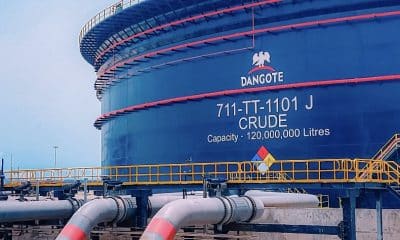Business
OPEC: Nigeria And Lybia Likely To Join Oil Cuts


Kuwait’s oil minister, Issam Almarzooq, has said Nigeria and Libya are likely to be requested to join the oil production cut that have already been agreed on by member and non-member countries of the Organisation of Petroleum Exporting Countries (OPEC).
At an energy conference in Istanbul-Turkey, Almarzooq revealed to journalists that both countries have been summoned by OPEC and non-OPEC producers to a meeting in St. Petersburg, Russia on July 24.
READ ALSO:
“We invited them to discuss the situation of their production. If they are able to stabilise their production at current levels, we will ask them to cap as soon as possible. We don’t need to wait until the November meeting to do that,” he said, referring to the upcoming OPEC meeting scheduled for November 30.
Almarzooq is the chairman of the committee overseeing the compliance of OPEC and non-OPEC suppliers with output cuts which began in January and have now been extended to March 2018.
Previously, minister of state for petroleum resources, Ibe Kachikwu, on May 25, said Nigeria was not reluctant to join the output cuts as long as production can reach the 2.2 million barrels per day (bpd) threshold.
Libya and Nigeria were excused from the oil production cuts decided by OPEC and non-OPEC producers to resolve the oversupply issues in the market.
While Libya’s crude oil output has risen to over a million bpd, from the previous 400,000 bpd in October, Nigeria’s output has risen to 1.6million bpd, from 200,000 bpd since October, following the restart of loading at Forcadoes terminal.
Muhammad Barkindo, OPEC’s secretary general, told newsmen that Nigeria and Libya would have to make a joint effort as the decision to exempt them was a mutual decision.
According to him, “The OPEC/non-OPEC ministerial monitoring committee will discuss the impact of the output curbs on the market at the July 24 meeting. Deepening the reductions under the current agreement is not on the agenda,” Almarzooq said.
“It is too early to discuss deeper output cuts by OPEC/non-OPEC producers participating in the agreement to curb production. We just finished the meeting in May and we need to give it more time.”
It is however unclear whether or not Nigeria would be permitted to get back production up to 2 million bpd before the implementation of the cap.a












